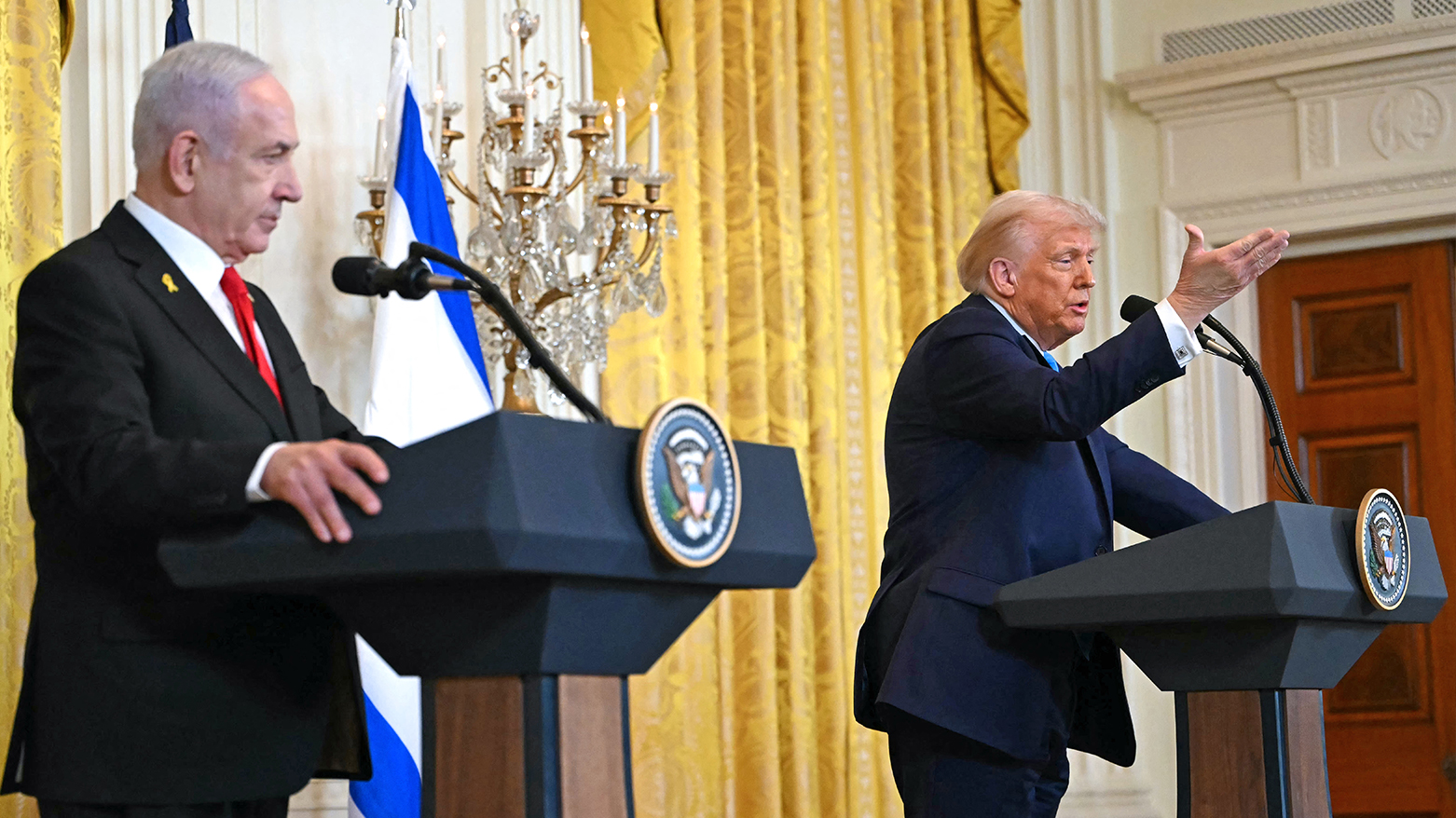US Walks Back Trump’s Comment on Taking Over Gaza—But did he mean it in the First Place?
Probably, Trump did not mean it literally, when he said the U.S. would take over Gaza and make it a resort. More likely, his remarks were meant to advance the next phase of the Gaza ceasefire.

Feb. 6, 2025
WASHINGTON DC, United States (Kurdistan 24) Speaking on Wednesday, several senior U.S. officials began to walk back remarks made by U.S. President Donald Trump on Tuesday in which he suggested that the U.S. would “take over” Gaza and turn it into a Middle Eastern resort area, akin to the French Riviera.
Trump’s unprecedented remarks precipitated outrage and anger, particularly in the Middle East. Of course, Arab officials had to reject, very firmly, Trump’s remarks. They had no other choice.
Read More: Trump's suggestion the US 'take over' the Gaza Strip is rejected by allies and adversaries alike
But that was not true of the Middle Eastern media. It had the freedom to analyze and speculate. But that was absent, and there was a significant gap between the Western media and its Middle Eastern counterparts.
Various Western media outlets—including The Washington Post, Britain’s Sky News, and France 24—all asked an important question: Did Trump really mean what he said? Or was it, perhaps, at least in part, a negotiating position?
It is inherent in the situation that one cannot really know Trump’s intention for sure. One can only speculate. But such speculation points in the direction of Trump intending his remarks to facilitate talks on the second phase of the Gaza ceasefire.
This is, after all, Trump’s diplomacy, and his Middle East envoy, Steve Witkoff, served as a key figure in concluding the negotiations.
How Trump’s Statements Promote the Gaza Ceasefire
The immediate impact of Trump’s position has been to promote prospects for continuing the Gaza truce into its second phase, which calls for the release of all remaining hostages and the establishment of a permanent cease-fire.
Israeli Prime Minister Benjamin Netanyahu arrived in Washington on Monday, making him the first foreign leader whom Trump met in his second term.
The purpose of Netanyahu’s visit has been to advance negotiations between Israel and Hamas—in which the U.S., Qatar, and Egypt act as intermediaries—on the second phase of the ceasefire.
Yet when Netanyahu arrived in Washington, he did not want to negotiate that agreement. That is a key point. Despite the close ties between the U.S. and Israel and the close personal ties between Trump and Netanyahu, the Israeli leader was balking at the second phase of Trump’s diplomacy.
On his first day in Washington, Netanyahu met with Witkoff and National Security Adviser Mike Waltz. Netanyahu faces stiff opposition from right-wing elements within his own government who oppose the second phase of the truce.
They have not forgotten the viciousness of Hamas’s brutal Oct. 7, 2023, cross-border assault into Israel. When mass murder and wholesale rape are carried out, they are generally committed by stronger forces against a weaker population—such as ISIS’s 2014 assault on the Yezidis.
There is virtually no precedent for a weaker power, like Hamas, carrying out such atrocities against a much stronger power. The result was pretty much predictable, and that is what Gaza has endured.
Thus, when Netanyahu arrived in Washington, he did not intend to conduct further talks with Hamas. But after meeting Witkoff and Waltz, he agreed.
” Israel said early Tuesday that it will send a negotiating team to Qatar this weekend for talks on the second phase of the Gaza deal,” as Turkey’s Anadolu Agency reported.
“The announcement came after a meeting between Netanyahu and U.S. special envoy Steve Witkoff and National Security Adviser Michael Waltz in Washington during which they discussed the next phase of the Gaza ceasefire deal,” it explained.
Trump’s remarks the following day at his joint press conference with Netanyahu greatly sweetened the deal. They were very much welcomed by right-wing elements in Israel and went very far in erasing their opposition to negotiating the second phase of the Gaza ceasefire.
Walking Back Trump’s Remarks
And then, the next day, on Wednesday, three senior U.S. officials modified Trump’s remarks.
Addressing reporters in Guatemala, Secretary of State Marco Rubio twice said that “Trump was only proposing to clear out and rebuild Gaza, not claim indefinite possession of the territory,” The New York Times reported.
In addition, Witkoff held a closed door luncheon with Republican senators and told them that Trump “doesn’t want to put any U.S. troops on the ground and he doesn’t want to spend any U.S. dollars at all” on Gaza, the Times said, quoting Missouri Senator Josh Hawley, who had attended the lunch.
And White House press secretary Karoline Leavitt told reporters, “The president has not committed to putting boots on the ground in Gaza,” although as the Times noted, it is difficult to understand how the U.S. could “take over” Gaza without using military force.
Thus, one might conclude that Trump did not mean it literally, when he said that the U.S. would take over Gaza and turn it into a new Mediterranean resort.
Rather, it seems more likely that Trump’s remarks were meant to advance the next phase of the Gaza talks.